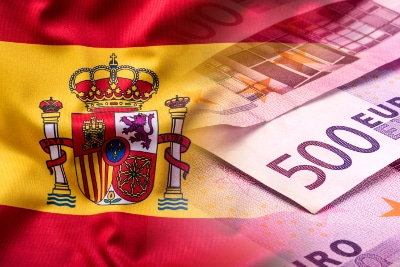If you decide to release a lump sum from your pension to move to another country, then it is worthwhile knowing how that lump sum will be treated in a different country.
We decided to look at three popular destinations for the UK Expat.
Several European countries preferred by UK expatriate retirees as retirement locations have favourable legislation around the receipt of pension lump sums, or offer attractive legislation for new arrivals.
France, Portugal and Malta all have very favourable tax treatment for money moved to these jurisdictions.
Expats resident in France will have their worldwide annual pension taxed on the French scale of income tax with a 10pc reduction – set at a minimum of €352 (£260) per pensioner, or a maximum of €3,660 (£2,706) per household.
If you hold a S1 form it gets even better…
You are exempt from these social charges if you hold an S1 form, which is a certificate of entitlement to health care in another European Economic Area country, provided via the social security authority in your home country.
So, would you remain in the UK and be taxed up to 45% or prefer an overall tax rate of 7.1pc in France? Hard choice I know; that can easily be further washed down with a glass of Bordeaux and some fine cheese.
If you are looking for more Sun and the ability to play loads of golf then there’s always Portugal. Those retiring to Portugal could benefit from the Non-Habitually Resident regime, which applies if you have not been resident for tax in Portugal within the previous five years. In short, this gives you tax exemption on foreign income sources – including interest, dividends, employment income, rental capital gains and pensions – for the first 10 years of a residency.
I have recently read an article that states the following: “The taking of a UK pension in the form of one or a series of lump sums in those first 10 years should mean no tax liability whatsoever would apply to the payments in the UK or Portugal.” I would challenge this statement as I do not believe HMRC would be happy with no tax being paid at all. That said the NHR system is clear on its taxation of foreign based income – but to be on the safe side, I would seek advice for a tax specialist.
Then there’s Malta. Malta, like Portugal has actively set out its regime to encourage people to retire there with its Malta Retirement Programme.
By taking up the MRP, beneficiaries will be able to benefit from a tax rate of 15pc on any income arising outside Malta which is received in Malta. To qualify for the scheme, the applicant must be an EU, EEA (Iceland, Norway and Liechtenstein) or Swiss national. You will also need to either purchase or rent a property in Malta (€275,000 value or €9,600 a year rental) or Gozo (€250,000 value or €8,750 a year rental).
While the benefits under the new pension rules are clear, there are a number of risks that expats need to be aware of in relation to these changes. Besides the risk of their pension pots running out too soon, they should beware fraudulent investment schemes targeting pension wealth.
What is clear is that you should make no decision on what to do with your pension pot until such time as you have sought professional financial advice. Your pension pot is supposed to be for life and you need to carefully invest the funds to be able to provide you with that lifestyle you have always dreamed of living.
Article written by Robert Mancera, Director
This communication is for informational purposes only and is not intended to constitute, and should not be construed as, investment advice, investment recommendations or investment research. You should seek advice from a professional adviser before embarking on any financial planning activity. Whilst every effort has been made to ensure the information contained in this communication is correct, we are not responsible for any errors or omissions.

 There is so much to recommend around retiring to Spain. However, the many opportunities inherent in a move to the country also bring a great many challenges. As such, if you want to join the approximately 250,000 British expats who currently live there, you will need to consider a number of important questions, not least the cost of retiring in Spain.
There is so much to recommend around retiring to Spain. However, the many opportunities inherent in a move to the country also bring a great many challenges. As such, if you want to join the approximately 250,000 British expats who currently live there, you will need to consider a number of important questions, not least the cost of retiring in Spain. If you work for yourself and do not take sufficient steps to invest for later life, you risk an uncertain financial future and may even court the possibility of running out of money at some point in your retirement.
If you work for yourself and do not take sufficient steps to invest for later life, you risk an uncertain financial future and may even court the possibility of running out of money at some point in your retirement.